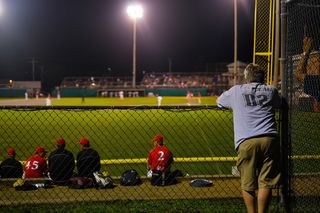Sleep
What Schools Can Do to Encourage Sufficient Sleep
It isn’t only about earlier start times.
Posted February 8, 2019
The movement to have school start later for high school, and in some cases middle school students, has met with considerable success. Starting school later gives students the opportunity to attain more sleep on school nights. But as many (including myself) have pointed out, it is naïve to think that starting later will guarantee more sleep. The focus on start times is appropriate, yet there are many other ways schools can encourage and give opportunities for students to get healthy sleep.

One objection to starting school later is that it reduces the time available for after-school activities, which is often the case. Scheduling of school-related events are under the control of school districts, and school officials should consider the timing of those events as they look at the bigger picture of how school affects the opportunity for student sleep.
As a parent who had children in school not long ago, I questioned the wisdom of scheduling school events during evening hours on school nights. Athletic practices and games often extend into evening hours. For example, since Friday nights are usually reserved for high school games, middle and junior high teams often play on Wednesday or Thursday nights, with some of those games requiring out-of-town trips. My experience of having a child in show choir was that practices and performances were extensive, and often held on school nights.
I believe strongly in the value of extra-curricular activities, but I also think school administrators should consider the unintended consequences of school night events. One more example is that when one of my children was in an IB program, study hours ran late into each night. I teach graduate students at a university, and I was surprised to know that high school IB students were studying late into the night, more so than my graduate students. Consider also that very few graduate classes begin before 9:00 a.m., and IB students have to be at school early every school day, meaning their time is squeezed on both ends—late night study and early classes. In spite of my expertise in sleep, my child in IB often slept 6 hours or less on school nights.
School personnel often have little training or education in how sleep relates to academic performance, emotion regulation and behavior, and general health. I was recently chagrined to discover how few articles on sleep have been published in the last 10 years in school counseling, school psychology, general education, or school administrator journals. Besides considering the implications of scheduling, there are many other roles for school personnel. Students are often punished for falling asleep in class. If a student is chronically and excessively sleepy, recognizing that as a sign of insufficient sleep and treating it would be more effective than punishment or telling the student to “get more sleep." Further, short self-report surveys to identify possible subclinical and clinical (e.g., apnea) sleep problems are readily available.


